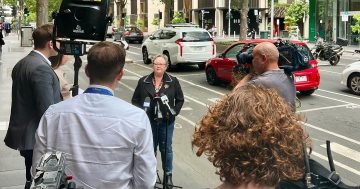John Wasiliev* says there are strict parameters for accessing retirement savings early, but a family law settlement could help out.

Image: Waldemarus
Q: Can I use my superannuation to help buy my former wife out of the family home as part of an asset split after we ended our 23-year marriage last year? I was wondering whether withdrawing money from my super might fall into the category of compassionate grounds. I doubt I could service a loan for the full amount as I would need about $450,000. But if I could bring it down by $100,000 from my super, that would make it easier. Matt.
A: Superannuation law is quite strict when it comes to allowing the release of money on compassionate grounds.
Further, you would have to make an application to the Australian Taxation Office (ATO) as it has the responsibility for allowing these superannuation regulations, says lawyer Stephen Bourke of SuperSplitting, a specialist internet-based superannuation law practice.
There are five grounds, he says, set out in Superannuation Industry (Supervision) Regulations, with the first being money to pay for medical treatment or transport to treatment for a life-threatening illness or injury.
Your super can also be used to pay for the treatment or transport to treatment of one of your dependants, such as a spouse or child.
Two medical practitioners must certify this is necessary.
Super can be used to pay for mortgage payments or outstanding Council rates to prevent the foreclosure and mortgagee sale or Council sale of your principal place of residence.
In this case, you must be the person responsible for making the payments and there are limits on the amount that can be released — namely, three months of payments plus 12 months of loan interest.
A third ground is for expenses to accommodate you or a dependant with a severe disability and can include payments to modify your home or car, the purchase of a modified car or the purchase of disability aids.
A fourth ground is to pay for palliative care (in the case of impending death) for yourself or a dependant.
The fifth and final ground is paying for the death, funeral or burial expenses of a dependant.
This ground does not include the release of super to pay for venue hire or catering associated with the death or what is commonly called a wake.
There is some “wriggle room” in the regulations, says Bourke, but the ATO can permit other cases only where the release is consistent with one of the five grounds mentioned.
It is also important to note that the compassionate grounds scheme does not permit reimbursement, so the expense cannot already have been paid.
There is another ground for early release where you are in severe financial hardship.
But again, the grounds are strict in that you must have been in receipt of Centrelink payments for 26 consecutive weeks and be unable to meet your “reasonable and immediate family living expenses”.
What this suggests, says Bourke, is that it is unlikely you can access these grounds for the purpose of a family law settlement where there is an inability to service a loan of $450,000.
However, depending on the amount in super, he says, a family law settlement could be structured to allow you to split your super in favour of your former spouse.
In other words, you could trade their equity claim to the family home for your super.
* John Wasiliev writes on personal finance for the Australian Financial Review.
This article first appeared at www.afr.com.











